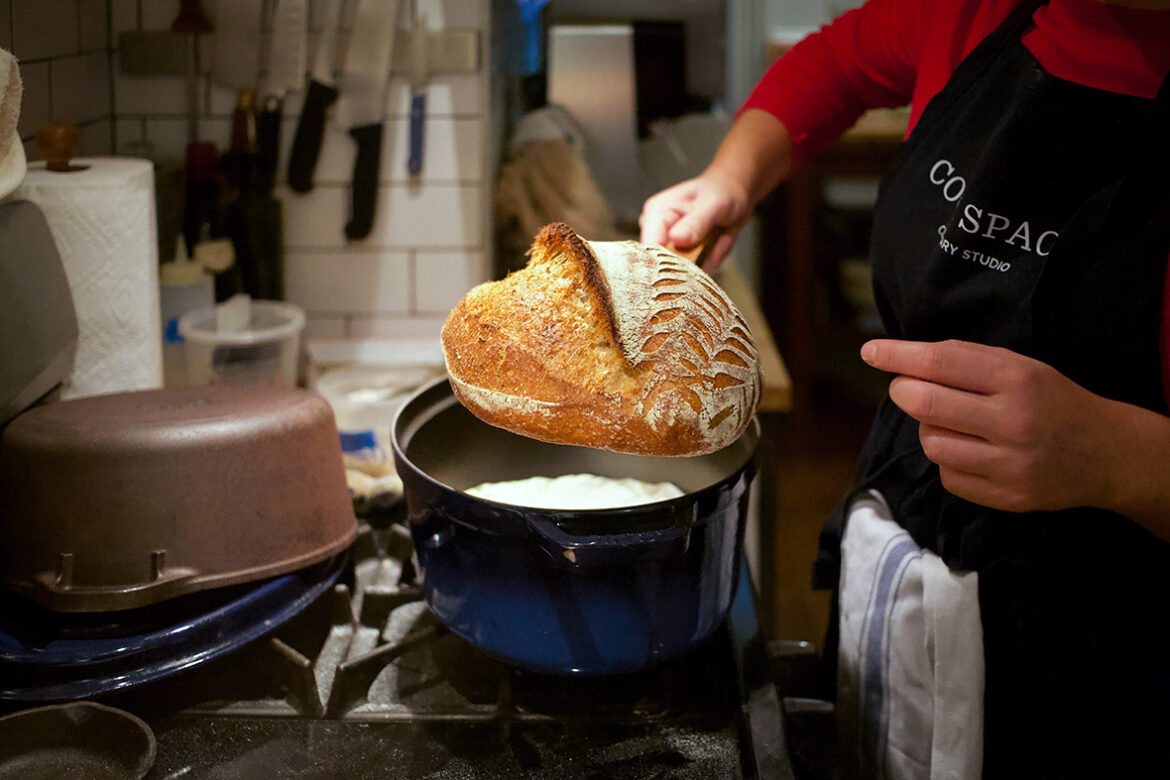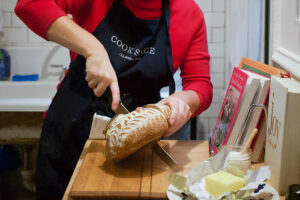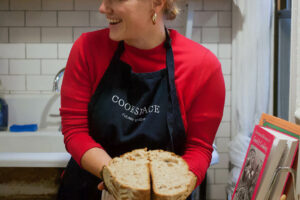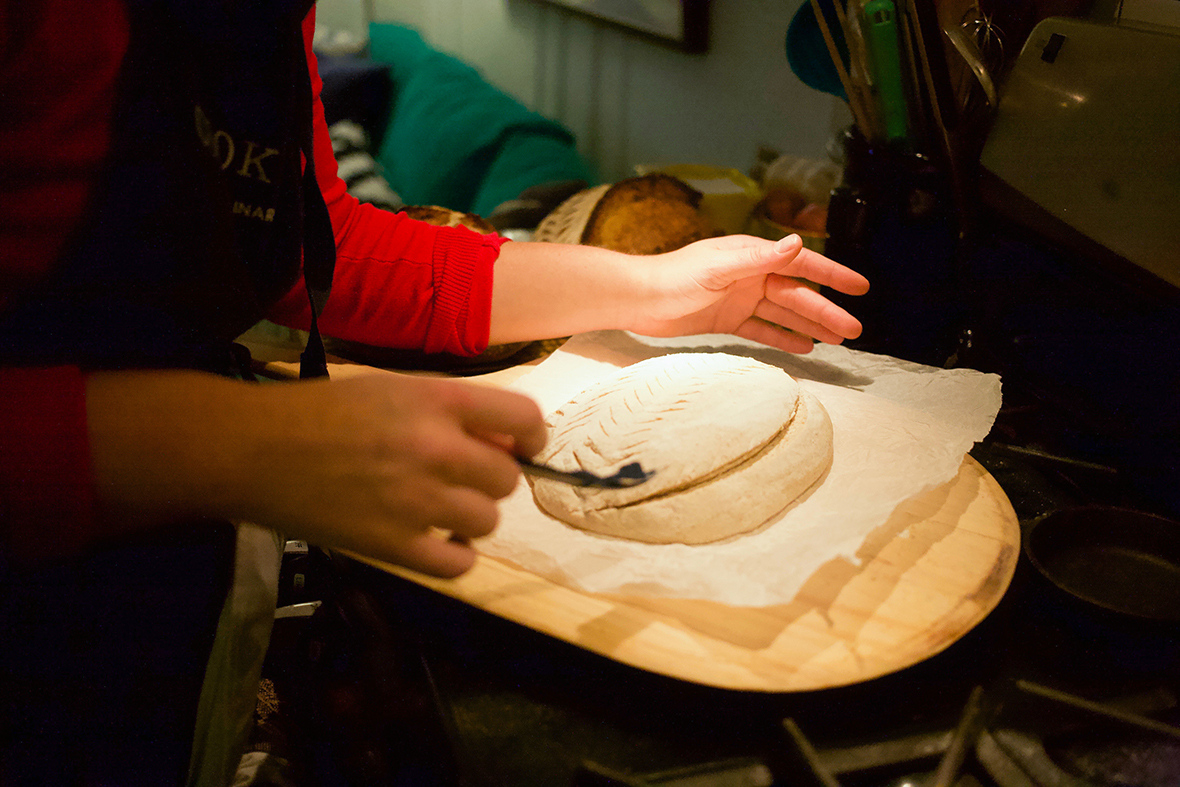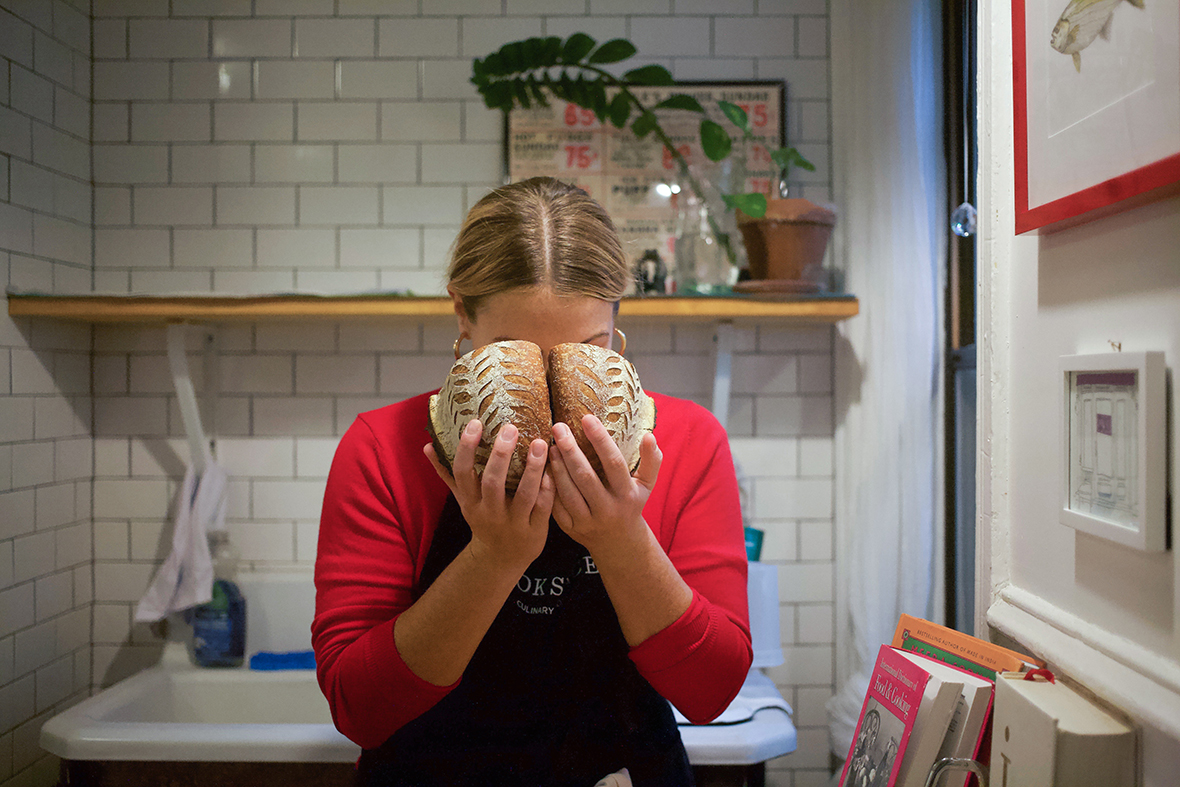
“I see myself as a conduit. I just happen to know how to do this thing that helps people give back,” says Dayna Evans, a 31-year-old copywriter, freelance food writer and baker who launched a weekly digital fundraiser, Permanent Bake Sale, in April to raise money for nonprofit organizations. The bake sale operates on a simple model: Bake bread each week, sell it on social media, give the money away to organizations doing good work.
The idea was sparked in October of last year after Evans helped organize a bake sale to benefit victims of Hurricane Maria in Puerto Rico that raised $4,000 for World Central Kitchen. Evans wanted to keep the momentum going and thought, “Why can’t I replicate the bake sale on a smaller weekly basis?” she tells me over the phone. The realization that she could use her growing skill baking bread to stay politically engaged has transformed Evans’s lifestyle and deepened her desire to give back using the resources she has.

Since last October, Evans has raised nearly $17,000 through online weekly bread sales and pop-up fundraisers at Playground Coffee Shop in her Bed-Stuy neighborhood. In July, Permanent Bake Sale brought in a combined $10,800 (with help from a $5,000 matched donation) for RAICES Texas, the Young Center for Immigrant Children’s Rights and Make the Road NY to aid immigrant families separated at the border. Spurned by the Kavanaugh hearings, Evans designated October to support RAINN, the largest anti-sexual violence organization in the U.S., for which the last remaining loaf rounded-out monthly proceeds to $900. Now, she’s focused on increasing voter turnout for the approaching elections.
Bake sales are low barriers of entry to small-scale activism that anyone can participate in to support causes they care about, Evans explains. There’s something subversive about a homegrown political bake sale, because it’s a fundraising model that, until recently, has been associated more with suburban moms raising money for school soccer jerseys than radical political action. Increasingly, however, it’s a way to activate communities around a specific social justice issue or urgent economic need; making brownies from a box mix or donating a dollar in exchange for a cookie is accessible.
For small grassroots organizations, even a few hundred dollars in donations goes a long way. The $220 Evans collected for the Arab-American Family Support Center based in New York helped purchase back-to-school supplies for children of Arab-American refugees and immigrants. In the wake of Hurricane Florence, Evans baked a spontaneous batch of loaves over one weekend and sent $300 to Food Bank of Central and Eastern North Carolina, a first-responder in natural disasters where each dollar provides five meals to people experiencing food insecurity.

Unlike large nonprofit organizations where a large percentage of donations are enveloped in opaque overhead costs, Permanent Bake Sale and the groups it supports are transparent about how their funds are used. Evans’s own labor-intensive process of making bread is upfront: to cover her ingredient costs, she keeps $1.50 or 15 percent of each $10 sourdough loaf claimed on Instagram and accepts payment through Venmo or in cash. She uses a blend of King Arthur bread flour and a rotation of whole-wheat and spelt flours purchased from local producers like Oak Grove Plantation, who have a stall at the Union Square Greenmarket, and the Brooklyn Bread Lab.
Operating out of a one-bedroom apartment in Bed-Stuy shared with her partner, Sam Carmichael— whose bread-making hobby first got her interested in experimenting with sourdough—Evans’s home has quickly turned into a small artisan bread lab. Carmichael’s ongoing support has been invaluable, from taking loaves out of the oven to designing the Permanent Bake Sale logo, he provides vital assistance getting four to eight loaves from dough to doorstep every week. But by far the biggest logistical hurdle is delivery. “Making bread is hard but organizing people in New York is much harder,” laughs Evans. Each week, she treks across the city by bike and on foot to hand deliver each loaf; she’s also started offering a CSA-style pickup once a week at a wine shop in Brooklyn to alleviate some of the pressure.
Using an online platform has allowed Evans to engage in consistent fundraising at a manageable pace. It also attracts donations from people outside of New York who cannot receive a loaf but want to give anyway. But the downside of activism via an app is its underlying exclusivity and isolation from in-person engagement.
“There is a network of people who don’t have social media or smartphones,” notes Evans, who cringes at the thought of Permanent Bake Sale existing only for food people in the Instagram bubble to congratulate each other on their involvement. Reliance on cashless transactions further marginalizes people without access to bank accounts, smartphones and data plans, so Evans organizes “IRL” bake sales every few months to occupy tangible space that attracts foot traffic and allows people to connect with each other and collaborate around pressing social justice issues like trans rights, police brutality and voter suppression.
“To me, it’s not enough to sell the bread online,” says Evans. “The most simple way to raise awareness and money is to set up on the sidewalk and sell baked goods, and I’m trying to be deliberate in making sure that’s ongoing.”


